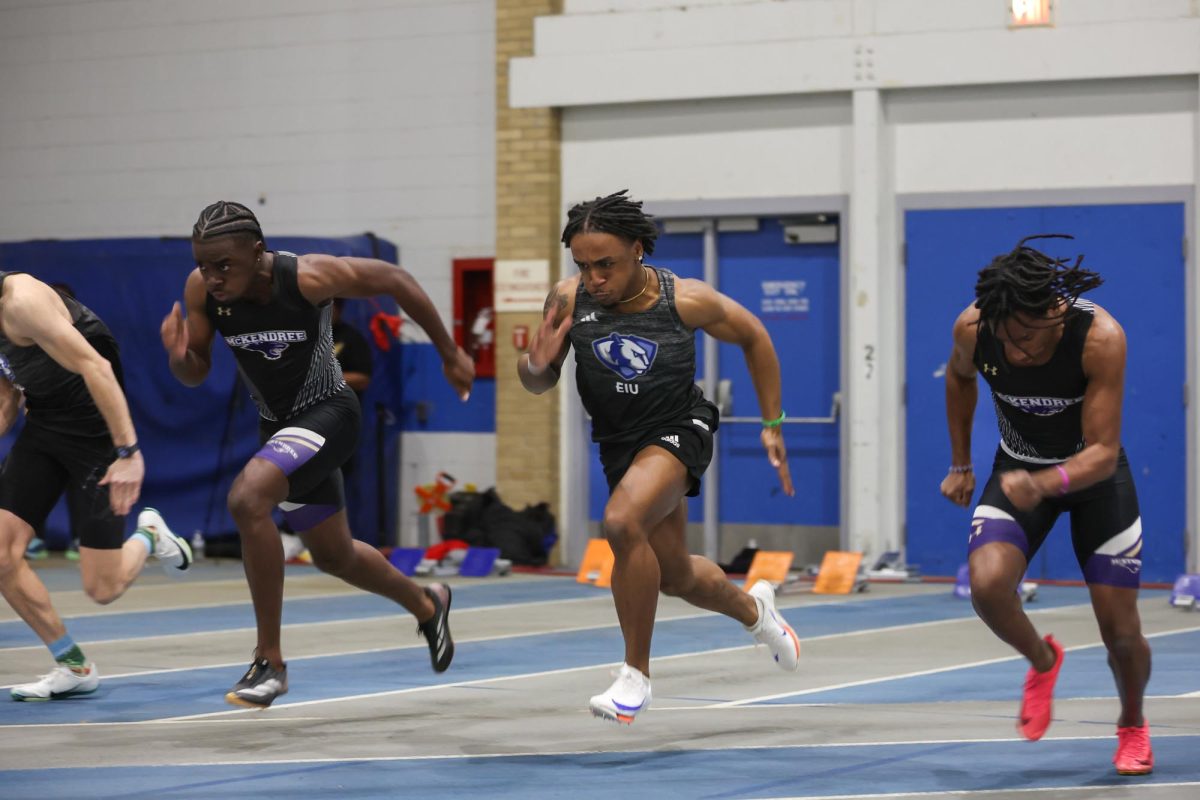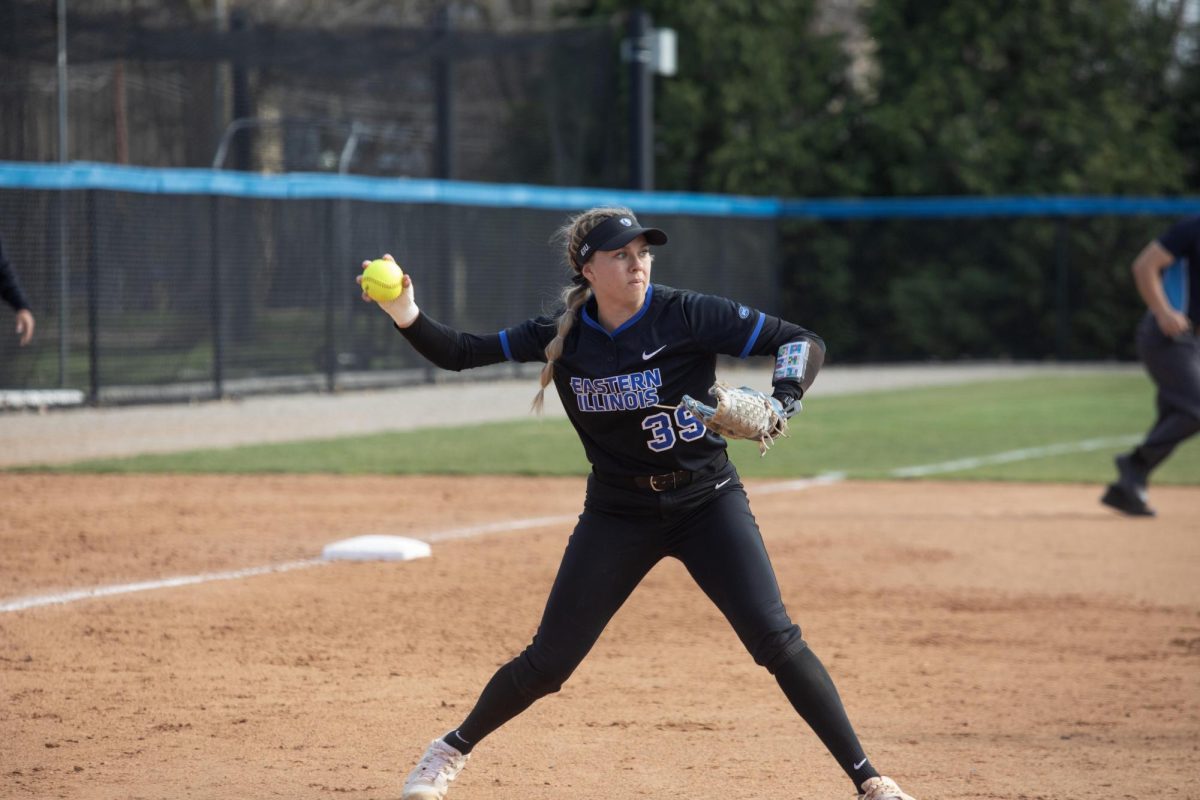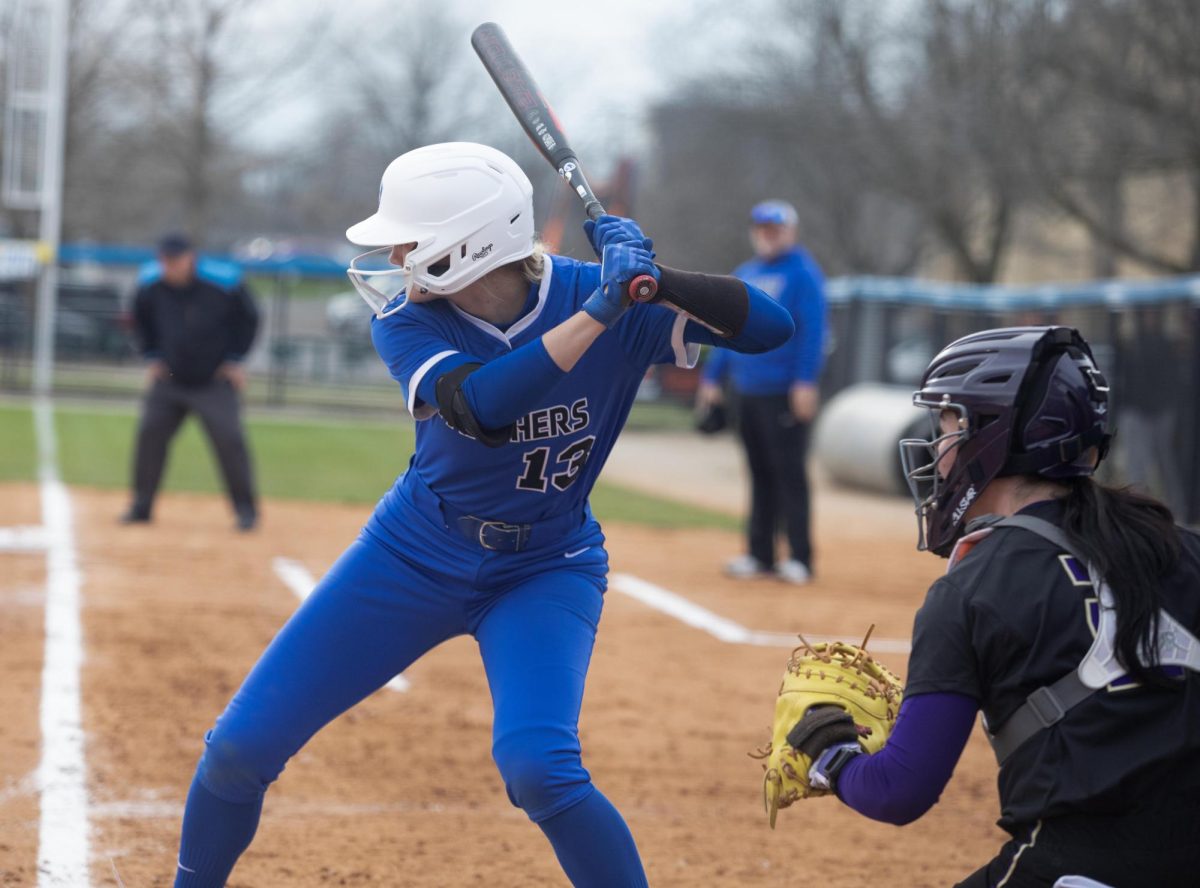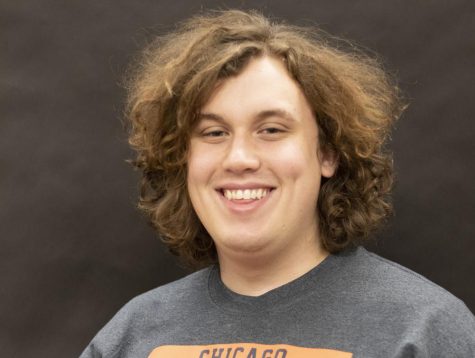How COVID has affected Greek Life
November 20, 2020
As of Nov. 14, there were 397 COVID-19 positive cases among Eastern students in Coles County and 48 among employees. Ninety percent of the university’s available quarantine space remains available for use.
The following Greek chapters have been quarantined in their chapter houses: Alpha Phi, Alpha Sigma Tau, Sigma Kappa and Sigma Sigma Sigma.
The exposure of COVID-19 through Alpha Phi can be attributed to a member attending Bid Night activities while she was most infectious.
An email from Eastern’s lead COVID-19 investigator, Dr. Sheila Simons, addressed Mark Hudson, Director of Housing and Dining, and Anne Flaherty, the Vice President for Student Affairs, regarding Alpha Phi and stated the following:
“(Name redacted) was terribly symptomatic/ill on Sunday; she would have been most infectious Sunday and the two previous days. I need to shut Alpha Phi down for two weeks or else this has the potential to be a super-spreader event.”
The aforementioned Sunday was Bid Night.
Sigma Kappa and Sigma Sigma Sigma were directed to quarantine due to multiple members being exposed to individuals who tested positive, according to emails from Nathan Wehr, Director of Fraternity and Sorority Programs, directed to the members of both sororities.
Sigma Kappa was later notified by Wehr that members were no longer required to quarantine if they didn’t live in the campus chapter house and hadn’t been contacted by a contact tracer.
Alpha Sigma Tau was quarantined in their chapter house due to an outbreak within the chapter.
Lynsey Boushard, who was president of Alpha Phi at the time of her sorority’s quarantine, received an email from Wehr informing her that Alpha Phi had violated COVID-19 and Office of Fraternity and Sorority Programs policies.
The email stated that such violations could include “hosting of guests/visitors on campus and/or off-campus, mask-wearing, social distancing, group size, and/or violating their chapter quarantine directive.”
Simons cited Eastern’s COVID-19 page’s frequently asked questions when discussing consequences of violating isolation or quarantine.
“If you violate isolation or you violate quarantine, or if you do not cooperate with myself or other contact tracers that are supervised by me, you can actually be tentatively suspended from the university,” Simons said.
Simons attributed off-campus gatherings, both large and small, as reasons for COVID-19 spreading throughout Eastern and the community.
“Parties will definitely contribute to that, and we have seen that as well. Speaking for the entire county, it’s the smaller gatherings that we’re seeing. People get comfortable in what they’re doing, and maybe they do take off their mask, or they don’t pay attention to their mask, or they’re sitting closer than six feet because they’re just hanging out, and that’s what they normally do,” Simons said. “It doesn’t have to be a big group to do this, it can just be a handful of people.”
Mark Hudson, Director of Housing and Dining, has helped direct quarantining and isolating for students living on campus.
“It’s a little like the Tetris game, like how do you move people around this house to keep them separate for the period of time that they need to,” Hudson said.
The processes of isolating or quarantining a student differ in terms of length, Simons said.
“We’re just looking at placing an individual from the last day that they had contact with a person, a positive person, they’re placed in quarantine for 14 days from that day,” Simons said. “If they are positive individuals, then we place them in isolation for a period of 10 days because the infectivity period is 10 days.”
Wehr has been responsible for communicating between the university and Eastern’s Greek chapters and said that the amount of cases within the chapters have been higher than expected.
“I think the amount of quarantines within Greek Life have been slightly higher than expected and there is always an opportunity to enhance Protecting Our Panthers from the fraternity and sorority community here at EIU,” Wehr said.
Hudson said that COVID-19 cases among fraternities and sororities could be a result of the fact that those involved in Greek life spend considerable amounts of time together, often in shared living spaces.
“The thing that happens in Greek life, sort of like an athletic team, where they spend more time together, sometimes maybe they let their guard down a little bit too much, or they have an accidental exposure that they just didn’t know about,” Hudson said.
Wehr’s “focus has been on Protecting Our Panthers,” in his own words, and Simons said she believes Wehr is excelling at just that.
“I know from past experience he’s gone beyond expectations for that,” Simons said.
Hudson pointed out that while multiple chapters have been directed to quarantine, it’s important to remain optimistic with Eastern Greek life’s current state.
“I think what can happen in a Greek house, for example, is there’s a chapter room, and they’re all watching TV, and they don’t want to be wearing their masks, and sometimes they might get a little lax,” Hudson said. “But I also think it’s important to say, ‘Wow, a lot of the chapters haven’t had anything.’”
Ryan Meyer can be reached at 581-2812 or at rameyer@eiu.edu.











![[Thumbnail Edition] Junior right-handed Pitcher Lukas Touma catches at the game against Bradley University Tuesday](https://www.dailyeasternnews.com/wp-content/uploads/2025/03/MBSN_14_O-e1743293284377-1200x670.jpg)

![[Thumbnail Edition] Eastern Illinois University baseball senior utility player Tyler Castro fields a ground ball during the team's first intrasquad scrimmage of the season on Jan. 31.](https://www.dailyeasternnews.com/wp-content/uploads/2025/03/BB_01_O-e1742874760130-1-e1742907504722-1200x911.jpg)
![[Thumbnail Edition] Senior Foward Macy McGlone, getsw the ball and gets the point during the first half of the game aginst Western Illinois University,, Eastern Illinois University Lost to Western Illinois University Thursday March 6 20205, 78-75 EIU lost making it the end of their season](https://www.dailyeasternnews.com/wp-content/uploads/2025/03/WBB_OVC_03_O-1-e1743361637111-1200x614.jpg)





































![The Weeklings lead guitarist John Merjave [Left] and guitarist Bob Burger [Right] perform "I Am the Walrus" at The Weeklings Beatles Bash concert in the Dvorak Concert Hall on Saturday.](https://www.dailyeasternnews.com/wp-content/uploads/2025/03/WL_01_O-1200x900.jpg)
![The team listens as its captain Patience Cox [Number 25] lectures to them about what's appropriate to talk about through practice during "The Wolves" on Thursday, March 6, in the Black Box Theatre in the Doudna Fine Arts Center in Charleston, Ill.](https://www.dailyeasternnews.com/wp-content/uploads/2025/03/WolvesPre-12-1200x800.jpg)


















